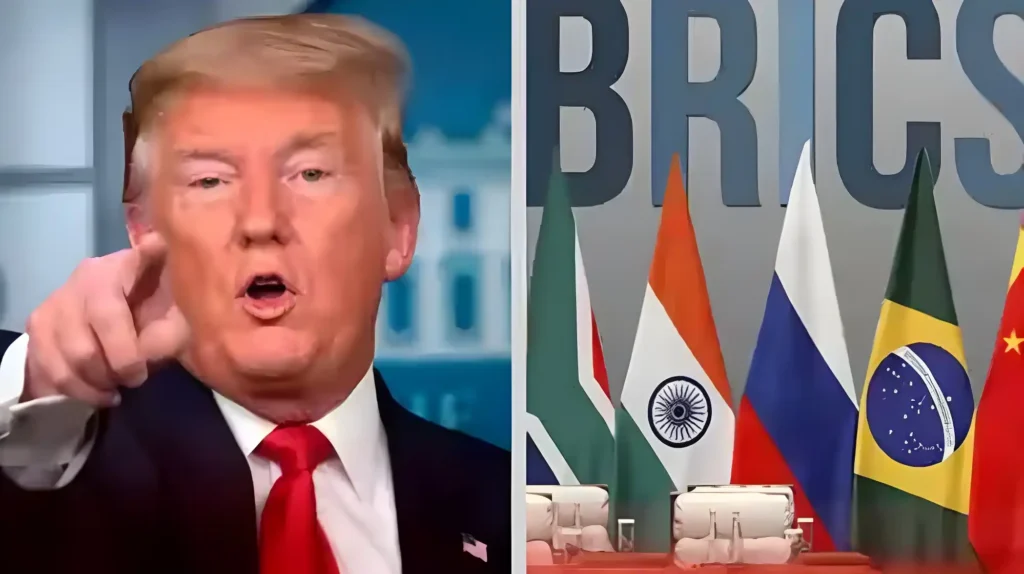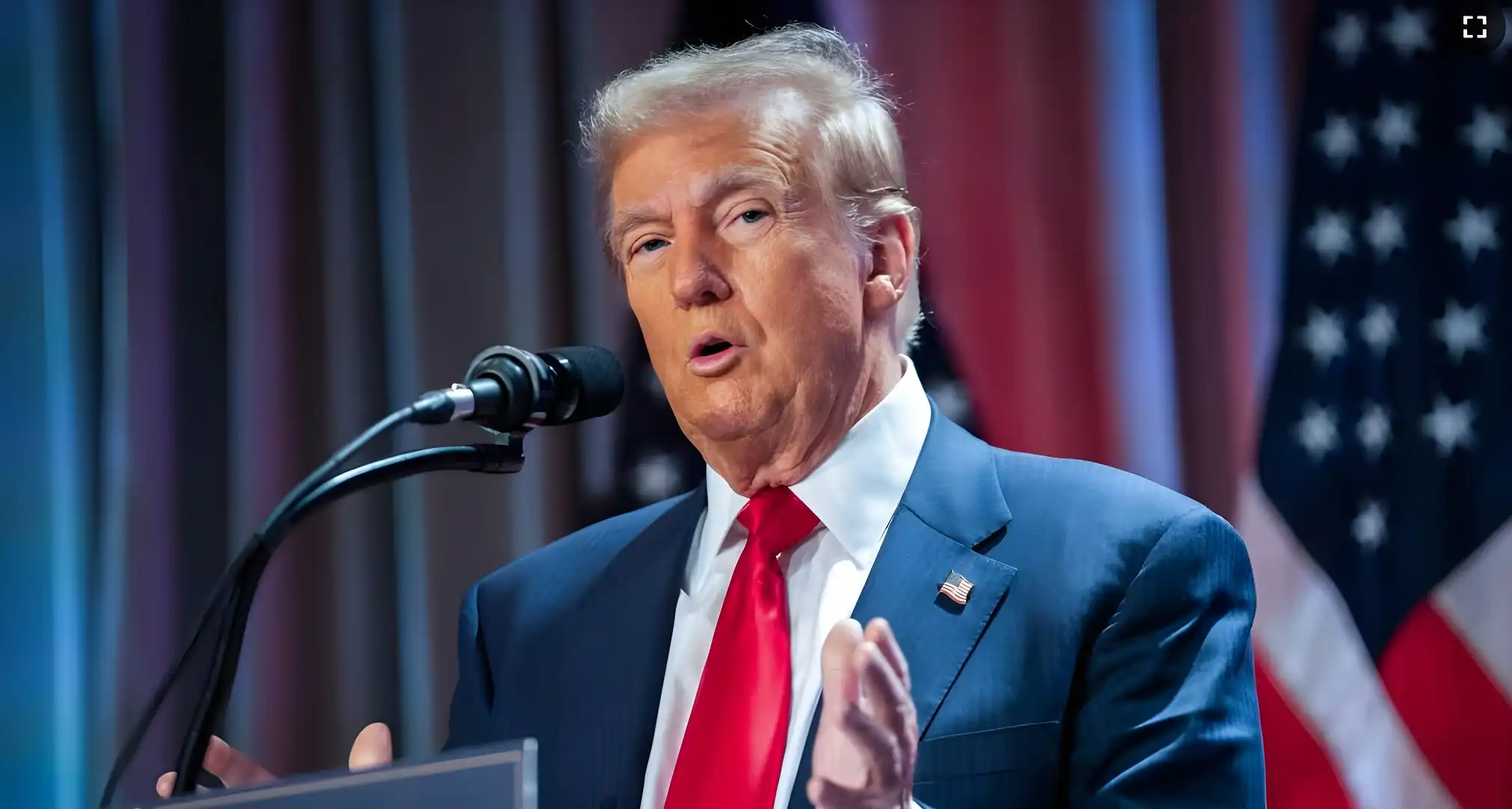Former U.S. President Donald Trump has sent a strong message to BRICS nations—support a new global currency, and you’ll face severe economic consequences.
Trump recently declared that any country backing a BRICS currency to rival the U.S. dollar would be hit with a 100% tariff on exports to America.
His warning comes as BRICS—Brazil, Russia, India, China, and South Africa—works to reduce its dependence on the dollar.
Many see this as a direct challenge to U.S. economic dominance. But will Trump’s threat stop them, or will it push BRICS even closer to financial independence?
Why Is BRICS Moving Away From the U.S. Dollar?
BRICS nations have grown frustrated with the U.S. dollar’s influence over global trade.
The U.S. controls the dollar-based financial system, which means it can use sanctions as a weapon. Russia, for example, faced economic restrictions after it invaded Ukraine, making it difficult to trade internationally.

To counter this, BRICS countries have increased trade using their local currencies. China and Russia now settle many transactions in yuan and rubles instead of dollars.
Brazil and Argentina have also explored alternative payment systems to bypass the U.S. financial network.
Can BRICS Really Dethrone the U.S. Dollar?
Replacing the dollar is easier said than done. While BRICS countries have economic power, they face major hurdles:
- Global Dependence on the Dollar – More than 60% of global foreign exchange reserves are held in U.S. dollars. Most international trade, including oil transactions, is conducted in dollars.
- Lack of a Unified Currency – BRICS countries have different economies, policies, and financial systems. Creating a stable, widely accepted BRICS currency would be a monumental challenge.
- Trust Issues – The dollar’s stability comes from strong institutions and investor confidence. BRICS nations, especially China and Russia, have government-controlled economies, making investors wary.
While BRICS is making progress in local currency trade, fully replacing the dollar remains a long-term goal rather than an immediate reality.
How Would Trump’s 100% Tariff Impact Global Trade?
If Trump follows through on his 100% tariff threat, the impact would be felt across the world. BRICS nations are key suppliers of goods to the U.S., and such a move would disrupt trade in several ways:
- Higher Prices for American Consumers – The U.S. imports billions of dollars in goods from China, India, and Brazil, including electronics, clothing, and raw materials. A 100% tariff would make these products significantly more expensive.
- Retaliation from BRICS Nations – If the U.S. imposes tariffs, BRICS countries might strike back with their own, hurting American exports. China, for instance, could tax U.S. tech and agricultural products, squeezing American businesses.
- Global Economic Instability – Financial markets react poorly to trade wars. Stock markets could tumble, businesses might cut jobs, and global supply chains would suffer.
Could This Backfire on the U.S.?
Trump’s tariff threat is meant to pressure BRICS into abandoning its push for a new currency, but history suggests it could backfire.
During his presidency, Trump imposed tariffs on Chinese goods, leading to a trade war.
Instead of weakening China, it forced them to develop new markets and boost domestic production. American companies, facing higher costs, struggled with lower profits.
If Trump imposes tariffs again, BRICS nations may accelerate their de-dollarization efforts. Russia has already warned that forcing countries to rely on the dollar through economic threats could lead to the opposite effect—more nations looking for alternatives.
What’s Next?
With global elections and shifting economic power, tensions between the U.S. and BRICS are only increasing. Trump’s warning could be a political strategy, or it could mark the beginning of a new economic conflict.
Will BRICS push forward with its currency plans, or will Trump’s tariffs make them think twice? And if a trade war breaks out, will the U.S. economy pay the price?
James is a talented content writer and digital researcher. He focuses on topics like investments, finance, scams, and product reviews. He works hard to uncover the truth behind online claims and explains things clearly. James is also great at spotting scams and sharing honest advice with readers. When he isn’t writing, he enjoys playing chess and basketball, blending his strategic thinking with a love for both quiet focus and active fun.







